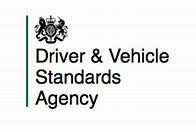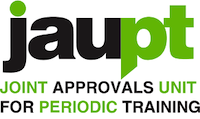So you finally finished writing your CV, the desire to send it out and be done with it can be overwhelming. I do understand that – You’ve spent so long look at your computer screen, that you honestly can’t contemplate looking at it anymore. At this point, there are 1001 things you’d rather be doing than proofreading.
The temptation to hit the send button is one you do have to overcome. With competition for jobs increasing, it’s imperative that you submit an error-free CV, ensuring that you aren’t ruled out for careless mistakes.
This does make the job of proofreading a CV a crucial but necessary task. A glance over or Microsoft spelling and grammar checks aren’t just enough. You need to make sure that you pick up on any spelling, punctuation, grammar or formatting mistakes before your cv leaves your desktop. But how to go about proofreading a CV you ask?
Following the tips below will help you to proofread your own CV, enabling you to systemically spot and address any errors before it’s too late.
- Leave it overnight.
It is tempting to complete writing a CV, then proofreading it in one sitting. Editing your CV immediately is not the best idea. Leaving it overnight or a few days, before coming back to review it enables you to look at it from a different light, changing how to spot mistakes.
- Move away from your desk.
Looking at a screen, where you’ve already spent hours looking at, won’t lead to a conducive way of proofreading. Instead, a good way of eliminating the screen, print of your CV and take it somewhere else. This is where most people find the best way of proofreading, as you’re able to get away from all the consuming emails and the procrastinating feeling you get from your social media. A fresh location and lack of distractions generally help people focus harder.
- Read it aloud.
When reading it your head you’re likely to slim over easy mistakes. Your brain generally sees what it wants to see, rather than what’s actually on the page. Instead, give yourself some time to read it aloud, will enable you to spot the mistakes. It honestly will feel weird doing this at first, but it is the best way to spot mistakes, clumsy phrasing, grammatical errors or duplicated words.
Not only this but also reading your work aloud is a good way to check that your confident in how you’re presenting yourself. As an interviewer may quote your own CV. In this scenario, you should make sure that you’re entirely familiar and it shouldn’t make you feel uncomfortable.
- Section by section, Line by line.
Reading a whole CV in one sitting dependant on how long it is, will probably end up in your skimming the text. This won’t help you to find the finer errors, so instead break down the job into bite-size chunks. Even if it seems like it will prolong the proofreading, the effort will be worth it.
Reading each section on a standalone basis will help you focus on each paragraph, allowing you to find possible errors.
- Read it backwards.
Ok, so this sounds weird but trust me it makes sense. As generally our attention spans are short, so even if you start reading your CV at the top with the best intentions you’re more than likely to start skimming down the page. Try to make a mental note of when you start skimming, then you’ll be able to ensure that you’ve included the most important messages above this point. Once you’ve read your CV from the top down, read it again from the bottom up. Ensuring that each possible page gets the same care and attention as it did beforehand.
- Change fonts.
After writing your CV the last thing you want to do is stare at the same font for another hour. By changing the font, it will freshen up the page, encouraging your brain to be more focused and this will be critical to the edit.
- Use Grammarly.
Grammarly is an online editing tool, of which it identifies and corrects a broad range of grammatical, spelling and punctuation mistakes. Grammarly checks for over 250 different grammar rules, so it is pretty comprehensive. By using an online editor, it will help you to achieve a polished and error-free CV.
- Ask a friend.
After you have proofread it yourself, it's not a bad idea to have a friend whom may look at your CV before you send it. As an impartial review can help you gain a perspective of which you hadn’t seen before and can help you fundamentally improve your final edit.
Someone who hasn’t seen your CV before will be fresh eyes and will help you check for spelling, punctuation and grammar mistakes. Not only this but you could ask them to sanity check it for you.
- Lastly…
Having following these tips you can be confident that you’ve done enough of a thorough job of proofreading you CV. Correcting any mistake and completing a final edit. Then get ready to send it off and apply for that job!






